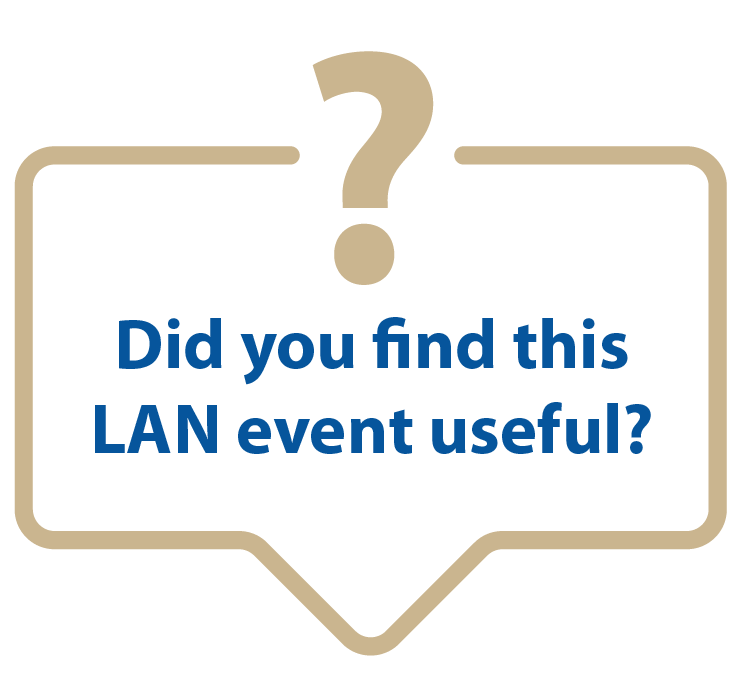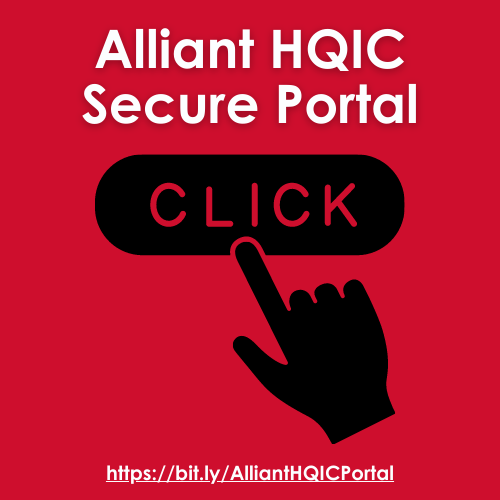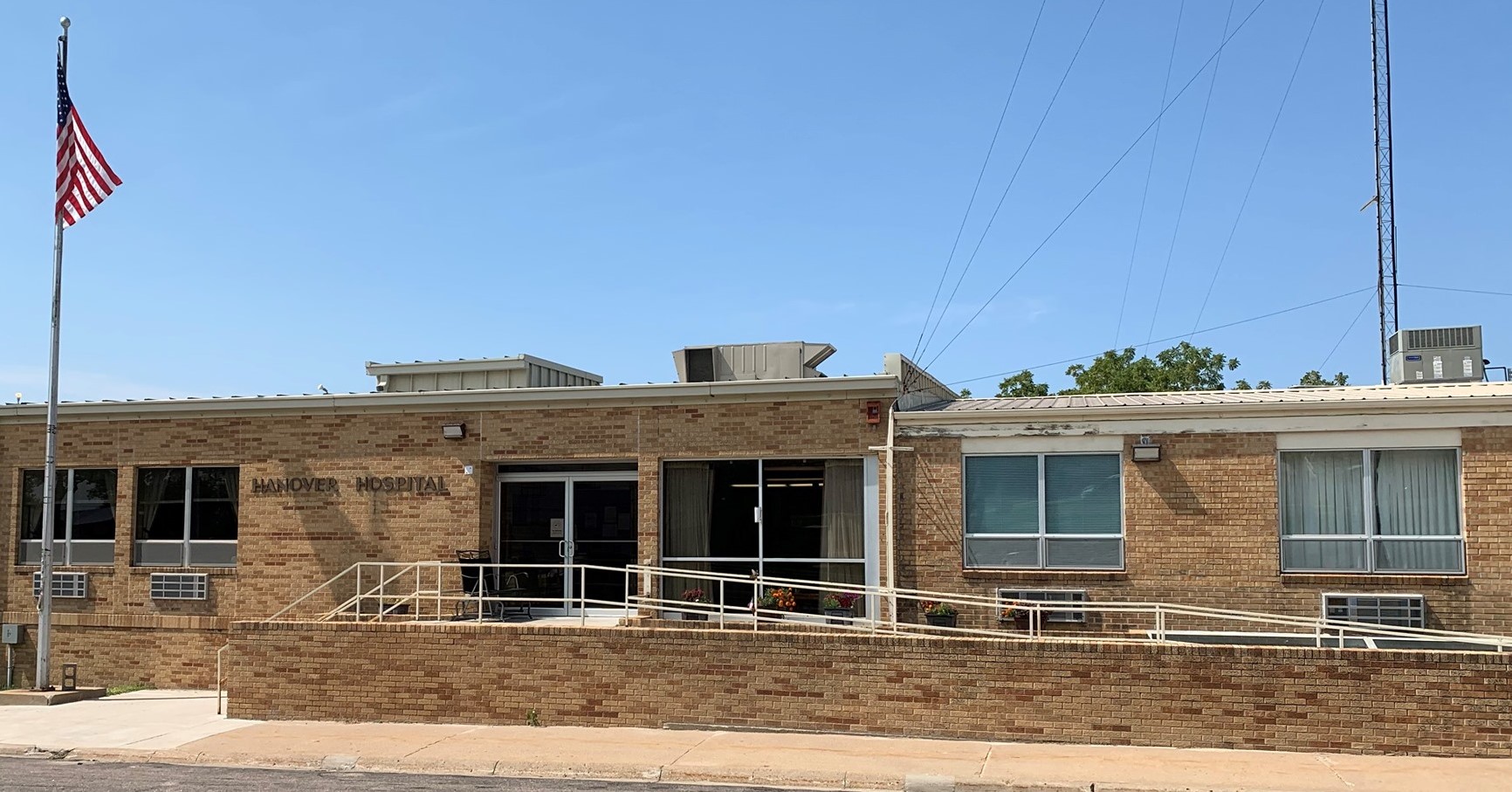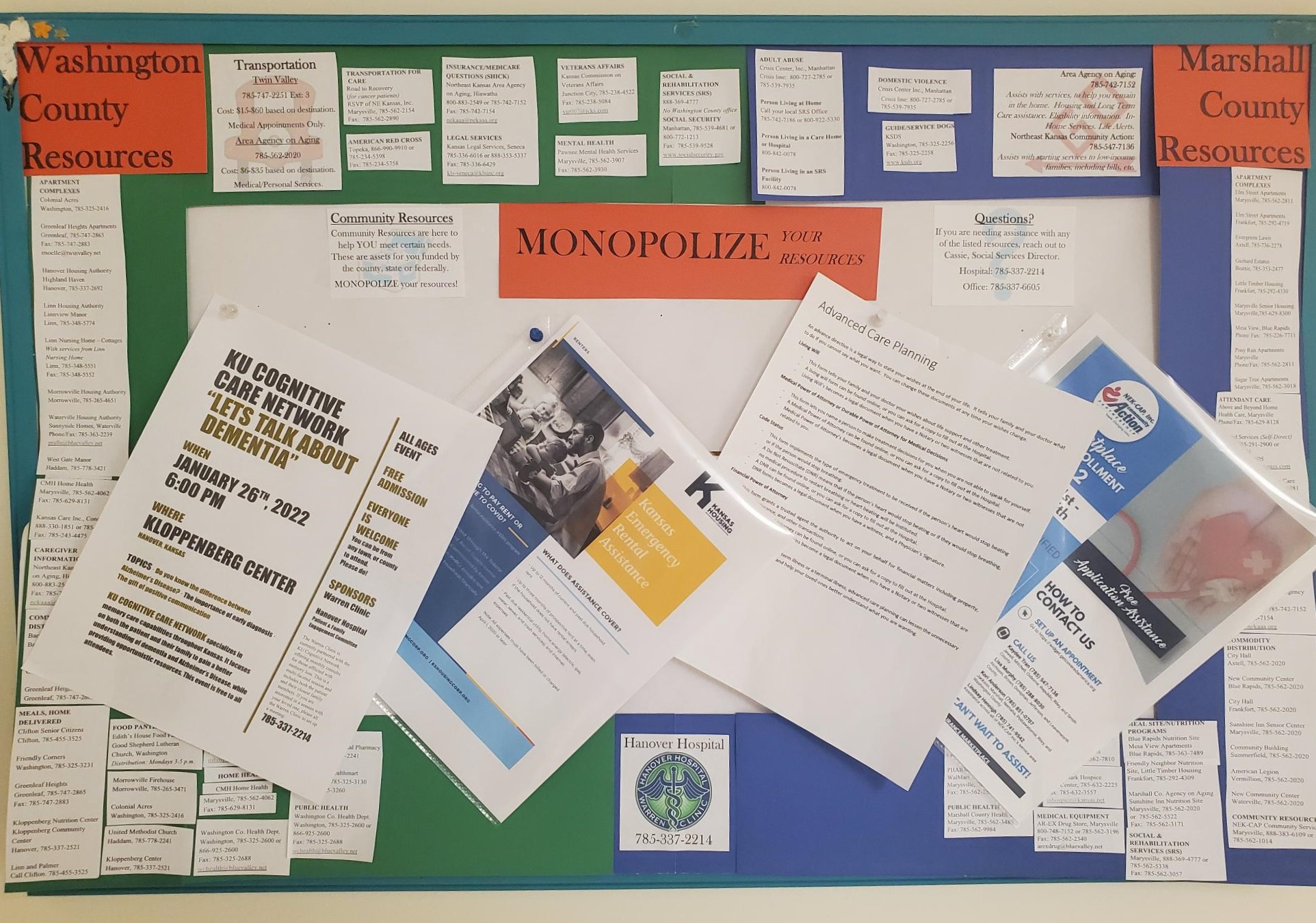|
|
|
|
This monthly newsletter highlights the latest insights, resources, and evidence-based best practices.
Our hope is that this newsletter makes it easy for you to stay on top of trends and allows you to provide the best possible care for those you work with and serve.
|
|
|

Guidance for the Interim Final Rule - Medicare and Medicaid Programs; Omnibus COVID-19 Health Care Vaccination
The Centers for Medicare & Medicaid Services (CMS) released guidance on the Omnibus COVID-19 Health Care Staff Vaccination Interim Final Rule that was published on November 5, 2021. The emergency regulation helps safeguard health care workers and the people they serve from COVID-19 and its variants by imposing requirements regarding vaccinations for eligible staff at health care facilities participating in the Medicare and Medicaid programs. This guidance provides important information on implementation, as well as guidelines to assess and maintain compliance with the COVID-19 vaccination requirements for health care workers at facilities participating in the Medicare and Medicaid programs. Read the Guidance
CMS also updated its Current Emergencies Page with corresponding FAQs and infographics. These items can be found under “Clinical and Technical Guidance for All Health Care Providers” here.
|
Alliant HQIC Quality Leader Summit
Tuesday, January 18 at 3-4 p.m. ET | 2-3 p.m. CT | 12-1 p.m. PT
The Alliant Hospital Quality Improvement Contractor (HQIC) team will provide a summary on the Year One accomplishments to date for our 150 enrolled hospitals. The Alliant HQIC team and partners will discuss a summary of program goals, including data measures and performance to date. Educational and networking opportunities will be highlighted as well as a demonstration on how to access your hospital’s trended graphs on the hospital portal. Discussion will also include national hot topics, areas of focus based on CMS recommendations and what’s on the horizon for 2022.
Objectives:
- Discuss a review of Year One including program goals and accomplishments
- Report on the data measures and performance to date
- Illustrate the success of technical assistance and performance improvement coaching
- Discuss a summary of educational events and networking opportunities
- Provide a demo of the hospital portal including reports, assessments and discussion boards
Register Today
Past Learning and Action Network (LAN) Events
One Hospital’s Journey to a Culture of Health Equity: Lessons Learned from a Rural Community
Recorded on November 23
In this webinar, participants learned about the population health initiatives at Jefferson Healthcare, a rural health system located in Port Townsend, Washington. In 2020, a robust health equity initiative was started that strategically overlapped with hospital operations and focused on the quality and patient safety program. This session presented an overview of Jefferson Healthcare’s culture of equity journey, explained how data was used to drive decision-making for performance improvement and highlighted tools and resources to enhance health equity.
View Recording | View Slides | Change Pathway
View All Upcoming Events Here

If Yes, Click Below.
Click here if you attended the November LAN event and were able to "use tomorrow" what you heard during the webinar.
View All Previous LAN Event Recordings
Community of Practice (CoP) Calls
A series hosted by CMS on the second Thursday of each month at 1 p.m. ET | 12 p.m. CT | 11 a.m. MT | 10 am. PT
The Impact of Meaningful Medication Reconciliation on Adverse Drug Events
Thursday, January 13
Employing a multidisciplinary approach that includes partnering with patients and families in meaningful medication reconciliation is key to preventing all-cause harm. Join the interactive January 13, 2022, Community of Practice Call and panel discussion with subject matter experts to learn more. Hear from Denton Chancey, PharmD, from Telligen, and Tom Workman, Ph.D., from American Institutes for Research, who will provide insights into the magnitude of this patient safety issue in the hospital setting. Presenters from two HQIC participating hospitals, Lacey Fellows, RN, BSN, CIC, and Julie Harris, RPH, will describe best practices they have employed in their facilities to foster successful medication reconciliation processes that have resulted in improved patient safety and outcomes.
Register Now
Past CoP Calls
Creating a Hospital Community's Social Needs Profile
Recorded on December 9
Health and quality of care are essential. By incorporating details from publicly available data and a few other tools into this valuable assessment, the development of a profile provides a targeted way to meet the most critical social needs and improve outcomes. This CoP webinar discusses links to specific quality measures with the social needs profile and the benefits of collaboration among facilities with overlapping communities to reduce disparities. View Slides
Upcoming CoP Calls—Save the Date
- Feb. 10, 2022
- March 10, 2022
- April 14, 2022
- May 12, 2022
- June 9, 2022
- July 14, 2022
Patient Safety Network Series
Alliant Health Solutions and our HQIC Partners are continuing the Patient Safety Network series through January 2022. These 30-minute sessions provide resources to support improvement in the specific areas listed below. Register for the session(s) in which your hospital needs assistance. Subject matter experts and quality improvement advisors offer guidance, resources and tools that allow participants to identify and develop action plans to address gaps and drive improvement. In addition, participants can ask questions and share experiences with HQIC improvement staff and peers from other HQIC hospitals. Please register for the session(s) in which your hospital needs assistance.
Adverse Drug Event Opioids and Opioid Stewardship
Thursday, January 13 at 11:30 a.m. ET | 10:30 a.m. CT
Presenters: Jennifer Massey and Lynne Hall
Register Here
The ADE Opioids and Opioid Stewardship sessions is held the 2nd Thursday of the month.
IP (C. diff/MRSA, CLABSI, CAUTI)
Thursday, January 13 at 12 p.m. ET | 11 a.m. CT
Presenters: Amy Ward and Rhonda Bowen
Register Here
The IP (C. diff/MRSA, CLABSI, CAUTI) sessions is held the 2nd Thursday of the month.
Sepsis and Septic Shock
Wednesday, January 19 at 12 p.m. ET | 11 a.m. CT
Presenters: Amy Ward and Rhonda Bowen
Register Here
The Sepsis and Septic Shock sessions is held the 3rd Wednesday of the month.
Anticoagulants and Glycemic Adverse Drug Events
Tuesday, January 25 at 12:30 p.m. ET | 11:30 a.m. CT
Presenters: Jennifer Massey and Carol Snowden
Register Here
The Anticoagulants and Glycemic ADE sessions is held the 4th Tuesday of the month.
Pressure Injuries
Wednesday, January 26 at 12 p.m. ET | 11 a.m. CT
Presenters: Sarah Phillips and Tracy Rutland
Register Here
The Pressure Injuries sessions is held the 4th Wednesday of the month.
COVID Office Hours - IP Chat
Alliant hosts COVID Office Hours–IP Chat for infection preventionists and other healthcare providers to discuss the challenges and solutions of COVID patients in hospitals and other topics of interest. The Office Hours–IP Chat is led by Alliant’s Infection Prevention Specialist Amy Ward, MS, BSN, RN, CIC, who facilitates the open discussion and answers any questions. For more information, email Amy Ward at amy.ward@allianthealth.org.
Beginning January 1, 2022, COVID Office Hours–IP Chat will be moving to the 2nd and 4th Wednesday of every month from 2-2:30 p.m. ET. *No session will be held on Wednesday, Jan. 12.*
No registration is required.
Join by phone: 646-992-2010 Access code: 2337 284 8005
WebEx link: COVID Office Hours- IP Chats
|
 Alliant HQIC Online Portal Alliant HQIC Online Portal
Access the Alliant HQIC portal to view your assessments and measurement data, and chat with other HQIC-enrolled hospitals to share best practices, barriers and solutions. Download Portal Instructions to Get Started
Behavioral Health/Opioid Stewardship
Cannabis and Other Plant-Based Treatments for Chronic Pain
In an effort to address the opioid epidemic, a prominent goal of current research is to identify alternative treatments with equal or better benefits for pain while avoiding potential unintended consequences that could result in harm. An ongoing study published by the Agency for Healthcare Research and Quality (AHRQ) is evaluating the evidence of benefits for cannabis-based compounds to treat chronic pain. Read the Study
Patient Safety
Adverse Drug Events
Effect of Automated Unit Dose Dispensing With Barcode Scanning on Medication Administration Errors: An Uncontrolled Before-and-After Study
Medication administration errors (MAEs) frequently occur in hospitals and may compromise patient safety. A study published by the International Journal for Quality in Health Care assessed the effect of central automated unit dose dispensing with barcode-assisted medication administration on the prevalence of MAEs. Read the Study
Antibiotic Stewardship
Antimicrobial Stewardship: Another Focus for Patient Safety?
A review published in the journal Current Opinion in Infectious Diseases summarizes the literature on antimicrobial stewardship to illustrate its relationship with patient safety. Interventions to reduce unnecessary antibiotic use included guidelines for controlling Clostridium difficile infection rates, mandatory outpatient parenteral therapy consultations and performing medication reconciliation. Read the Review
Remember These Eight Facts to Continue Being Antibiotics Aware
- Antibiotics can save lives. They are critical tools for treating life-threatening conditions, such as pneumonia and sepsis. When a patient needs antibiotics, the benefits outweigh the risks of side effects or antibiotic resistance.
- Antibiotics aren’t always the answer. Talk with your healthcare provider or veterinarian about the best treatment when you, your family or an animal is sick.
- Antibiotics are only needed to treat infections caused by bacteria, but even some bacterial infections get better without antibiotics, including many sinus infections and some ear infections.
- Antibiotics do not work on viruses, such as those that cause colds, flu or COVID-19. Respiratory viruses usually go away in a week or two without treatment. Ask your healthcare professional about the best way to feel better while your body fights off the virus.
- Take antibiotics exactly as prescribed. Do not use antibiotics that aren’t prescribed for you by your healthcare professional. Talk with your healthcare professional if you have any questions about your antibiotics or develop any side effects. Diarrhea can be a symptom of Clostridioides difficile infection (also called C. difficile or C. diff), which needs to be treated.
- If you have animals, talk with your veterinarian about using antibiotics responsibly to keep people and pets healthy. Don’t use antibiotics that aren’t prescribed by your veterinarian.
- Store antibiotics safely in your home so that children and pets do not accidentally take medicine not meant for them.
- Dispose of antibiotics properly. Do not flush them. Medicine take-back programs are a good way to dispose of most types of unneeded or expired drugs safely. Experts are working to better understand antibiotic resistance in the environment (e.g., water, soil) and its possible impact on people.
Pressure Injuries
COVID-19 Resources for Pressure Injury Prevention
The National Pressure Injury Advisory Panel (NPIAP) is an independent nonprofit professional organization dedicated to the prevention and management of pressure injuries. Click Here to read their paper "Unavoidable Pressure Injury during COVID-19 Pandemic: A Position Paper from the NPAIP."
Pressure Injuries and COVID-19
Access resources from NPIAP on COVID-19 and the effect it is having on health care providers and patients. NPIAP compiled a list of COVID-19 related resources for pressure injury protection and offers free materials to help identify pressure injuries and how to prevent them. Access Resources
Sepsis
New Sepsis Tool Can Help With Improvement Work
Three key ways to reduce sepsis mortality/sepsis shock are early identification, early intervention and leveraging data for identifying and monitoring sepsis. Alliant’s Sepsis Gap Assessment tool can help identify and prioritize improvement work. Download Sepsis Gap Assessment Tool
Using Code Sepsis Can Improve Patient Outcomes
Does your facility have a Code Sepsis? Evidence shows that the implementation of Code Sepsis, like Code Stroke or Code STEMI, improves patient outcomes. Among patients with Code Sepsis activation, there is an improvement in adherence to the sepsis bundle, a decrease in intensive care admissions, a decrease in the average length of stay and, most importantly, a decrease in mortality. If your facility does not have Code Sepsis, talk about the concept at your next sepsis meeting. Develop an SBAR for support of the process. Need assistance? Send us your draft SBAR for review and feedback! Email us at Amy.Ward@Allianthealth.org or RBowen@Comagine.org. If you missed the December 15 Patient Safety Network on Sepsis and Septic Shock, check it out here.
Patient and Family Engagement
Restarting and Energizing PFACs–Easy to Implement How-To-Lists
The Consumers for Advancing Patient Safety (CAPS) is an organization that envisions a partnership between consumers and providers to create global healthcare systems that are safe, compassionate and just. Join the Zoom series for Restarting and Energizing PFACs–Easy to Implement How-To-Lists hosted by CAPS and Healthcare and the Patient Partnership Institute (H2Pi). Click Here for the Celebrating, Recognizing and Honoring Members of Your PFAC How-To List
Next Zoom Webinar: Recruiting Patients for Your PFAC
Jan. 11, 2022 at 4 p.m. ET | 3 p.m. CT
Register Here
Health Equity
New FY 2022 Guidelines for ICD-10 Coding and Reporting Related to Social Determinants of Health
The CDC National Center for Health Statistics have updated the International Classification of Diseases, Tenth Revision, Clinical Modification (ICD-10-CM) code set with 11 new diagnosis codes describing social determinants of health. View the Update
Achieving Health Equity
Are your NQIIC communities re-examining their health equity initiatives? This two-hour online course from the CMS Medicare Learning Network presents education on identifying and eliminating health disparities in organizations. Health equity improves the quality of health care for the individuals and families in NQIIC communities and aligns your stakeholders’ efforts with CMS strategic goals. Take the Course
Sentinel Event Alert: Addressing Health Care Disparities by Improving Quality and Safety
The Joint Commission considers addressing health care disparities as “a quality and patient safety imperative, as well as a moral and ethical duty.” The latest TJC Sentinel Event Alert provides strategies and successful initiatives for hospitals as they begin addressing disparities and hardwiring health equity into their hospital performance improvement and patient safety programs. Read the Event Alert
Readmissions/Care Transitions
Using the Communication and Optimal Resolution Process
The Communication and Optimal Resolution (CANDOR) process is a process that health care institutions and practitioners can use to respond in a timely, thorough and just way when unexpected events cause patient harm. Based on expert input and lessons learned, the CANDOR toolkit has been tested and applied in 14 hospitals across three U.S. health systems. The toolkit contains eight different modules, each containing PowerPoint slides with facilitator notes. Get the Toolkit
CDC Hospital Discharge Flowchart
The Hospital Discharge Flowchart from the CDC can help ensure appropriate antibiotic prescribing at hospital discharge. Health care professionals are encouraged to improve antibiotic prescribing and use by using the CDC’s Be Antibiotics Aware educational materials and sharing them with colleagues and patients. Free print materials and resources are available on the CDC website. Download Flowchart
|
COVID-19 Care
Using the Comprehensive Hospital Pandemic Preparedness Checklist for COVID-19
The CDC Comprehensive Hospital Pandemic Preparedness Checklist can help position hospitals to be prepared to identify and treat cases of COVID-19, including a potential surge in cases, and how to prevent the spread of disease in their facility. Using the Comprehensive Hospital Pandemic Preparedness Checklist for COVID-19 is one of four modules available to hospitals as a part of the Standards, Approaches and Tactics for Infection Control & Prevention (StAT) Learning Series for hospital clinical staff and leaders. Visit www.QIOProgram.org to learn more.
COVID-Related Resources Available on Alliant Website
As a strategic partner of the National COVID Resiliency Network, Alliant Health Solutions curates and creates resources to help mitigate the effects of COVID-19. Find our COVID-related flyers and other great resources at https://quality.allianthealth.org/topic/ncrn/.
The Less-Discussed Consequence of Health Care's Labor Shortage
The health care industry's staffing shortage crisis has had clear consequences for care delivery and efficiency, forcing some health systems to pause nonemergency surgeries or temporarily close facilities. Less understood is how these shortages are affecting care quality and patient safety. Read Full Article
COVID-19 Vaccine Resources
|
Success Stories
Kansas Hospital Uses Patient and Family Engagement to Help Patients Find Community Resources
While finishing her master's degree in social work, Cassie Pralle, T-LMSW, learned about the importance of looking at and evaluating which resources are thriving in communities and which were lacking. When she became the social services director at Hanover Hospital in Hanover, Kan., Cassie realized she had a blank slate. As a new person looking in, she was able to see what resources were needed in the community. An interdisciplinary Patient and Family Engagement (PFE) committee was developed that included RNs, DONs, a patient representative, a social worker and an administrator. Working together, the team members could pinpoint which areas in their community needed more resources. importance of looking at and evaluating which resources are thriving in communities and which were lacking. When she became the social services director at Hanover Hospital in Hanover, Kan., Cassie realized she had a blank slate. As a new person looking in, she was able to see what resources were needed in the community. An interdisciplinary Patient and Family Engagement (PFE) committee was developed that included RNs, DONs, a patient representative, a social worker and an administrator. Working together, the team members could pinpoint which areas in their community needed more resources.
The first area of note was the limited discussion in the clinic about outside resources available for patients. No specific person was responsible for discussing available resources with patients or the steps on how to utilize them. To correct this situation, a clinical referral sheet was developed that the provider could fill out. The clinical referral sheet starts the process of connecting patients with the social services director, who can explain what resources are available to them in the area. The knowledge gained from these meetings provides patients with better access to community resources, thereby decreasing stress related to obtaining assistance.
Working with providers and social services, the hospital can now address patients' medical conditions and any financial concerns they may have. Often, reducing stress becomes a turning point in a person's life.
The PFE committee meets monthly to discuss how things are going, who they have helped, and how the process has been working. "It's funny to say, but the most useful resource is working as a team and communicating with each other," Pralle said. "By working together, full patient support is achieved."
Another area that was noted was a need in the community for education and support for those caring for loved ones with dementia/Alzheimer's disease. Hanover Hospital, now a part of the KU Cognitive Care Network, has scheduled a community program hosted by the KU Cognitive Care Network to be held in January. This program, "Let's Talk About Dementia," will discuss the importance of early diagnosis and the gifts of positive communication. This educational program will be a great way to educate the community and surrounding areas while also providing resources to patients and their caregivers.
One recent win has been this hospital's "Monopolize Your Resources" board located in the clinic. This board includes names and numbers of resources for two surrounding counties. It also highlights upcoming events in the community, insurance information, and updated COVID-19 information. Since introducing the board to the clinic, there has been an increase in direct referrals to the social services director. Some of the types of assistance given include medical assistance, prescription drug assistance and utility assistance, to name a few. The hospital's resource board offers patients and their families their first step to receiving those resources. In an area where small town pride is prevalent, there continues to be a reluctance to ask for assistance. By offering each patient the opportunity to voice what they need in the privacy of the clinic or office setting, the hospital can provide support so their patients can obtain a higher quality of life. names and numbers of resources for two surrounding counties. It also highlights upcoming events in the community, insurance information, and updated COVID-19 information. Since introducing the board to the clinic, there has been an increase in direct referrals to the social services director. Some of the types of assistance given include medical assistance, prescription drug assistance and utility assistance, to name a few. The hospital's resource board offers patients and their families their first step to receiving those resources. In an area where small town pride is prevalent, there continues to be a reluctance to ask for assistance. By offering each patient the opportunity to voice what they need in the privacy of the clinic or office setting, the hospital can provide support so their patients can obtain a higher quality of life.
The hospital intends to grow the outreach within the community and hospital. One plan is to create an admission packet that contains resource information and other talking points, including a customized Medicare discharge planning checklist for their specific community, education materials on advanced care planning and available financial resources. Even though resources are continually changing, this packet will offer the first step to accessing community resources.
|
|
|
Connect with us!
    Click here if you'd like to share your corporate profiles with us and we'll connect with you!
Click here if you'd like to share your corporate profiles with us and we'll connect with you!
|
| |
Hospital Quality Improvement Project Collaborators


|
| |
|
Copyright © 2022, All rights reserved.
Our mailing address is:
Alliant Health Solutions
1455 Lincoln Pkwy
Suite 800
Atlanta, GA 30346
|
For more information about Alliant Health Solutions, visit the website: www.allianthealth.org
For questions or information about free technical assistance, please contact:
Share this email with a friend or colleague:  
|
|
|
|
|